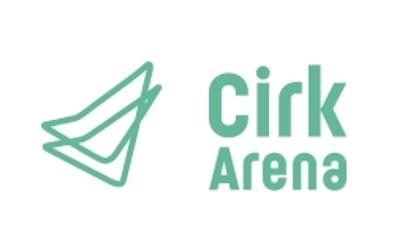Ostrava, [18.12.2024] – The Ministry of the Environment has approved the CirkArena project, a key initiative to promote the circular economy in the Moravian-Silesian Region. The project, which is funded by the Operational Programme Just Transformation (OP ST), represents a significant step towards sustainable development and regeneration of the region.
The CirkArena project will bring new life to the former ice rink in Třinec. This dilapidated site will become a modern centre for research into the circular economy, linking scientific, research and industrial activities. The aim is to create a space where innovations aimed at efficient use of materials, waste reduction and technological advances in sustainability will be developed.
The main promoter of the project is the research company Materials and Metallurgical Research (MMV), members of the research consortium are also, for example, the University of Mining and Metallurgy, Czech Technical University in Prague, UTB Zlín, Institute of Chemical Processes of the CAS, INCIEN and the statutory city of Třinec.
“I am glad that many months of work on the preparation of the project have finally come to an end. It has been hundreds and thousands of hours of work and negotiations with partners. I greatly appreciate all those who have contributed to this historic achievement, my colleagues from MMV, the project partners and our, dare I say it, colleagues from the SFŽP and the MoE. Now the hard part begins, namely to successfully launch the project, implement it and create a circular hub of European importance in our region”, said Jakub Švrček, Executive Director of MMV.
CirkArena will not only revive an abandoned sports complex, but will also become an example of how a region can face the challenges of transformation. Thanks to funding from the OP ST and support from the European Union, the Moravian-Silesian Region is moving closer to a sustainable and innovative future.
The Just Transition Operational Programme is a European Union instrument that supports the regions most affected by the transition to a low-carbon economy. In the Czech Republic, it focuses primarily on the Moravian-Silesian, Ústí and Karlovy Vary regions and aims to create new jobs, support innovation and reduce the socio-economic impact of the transition on local people.
The circular economy replaces the traditional “make-use-dispose” model with a system where materials are reused. This approach reduces the burden on the environment and brings new economic opportunities that have the potential to improve life in the region.


